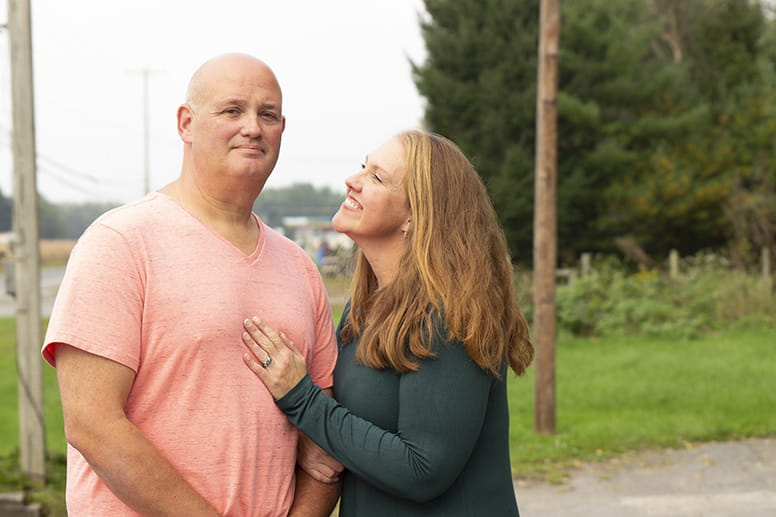Gastric sleeve surgery reverses prediabetes diagnosis
At her heaviest, Kareba Lee weighed 304 pounds. She wanted to be healthier, so when she was 32, she reached out to Geisinger's Nutrition and Weight Management program.
“I had high blood pressure and diabetes runs in my family,” says the Harrisburg resident. “I also had asthma.”
Knowing her weight was impacting her health, Kareba began to consider bariatric surgery. To be considered for bariatric surgery, also called weight-loss surgery, patients must complete a six-month program that includes education on nutrition, exercise and behavior modification.
“Each patient has an individualized treatment plan and learns what to expect before, during and after surgery to understand the lifelong changes they will need to follow,” explains Dr. Jennifer Franceschelli Hosterman, nutrition and weight management specialist and associate medical director of Geisinger's Nutrition and Weight Management program.
Patients enrolled in Geisinger's program see a nutrition and weight management team, which includes a dietitian, monthly. They also attend group classes where patients can support and encourage each other throughout their weight-loss journeys.
Life after bariatric surgery: Down 100 pounds and off all meds
Kareba underwent gastric sleeve surgery in February 2018. During gastric sleeve surgery, also called a sleeve gastrectomy, about 80 percent of the stomach is removed, leaving a tube-like pouch. This "newer," smaller stomach holds less food, which means patients feel fuller, faster. Since her journey began, Kareba is down 102 pounds. She is no longer on blood pressure medication or in need of an inhaler to control her asthma.
“I'm no longer prediabetic,” says Kareba. When it comes to advice for others, she says, “If you want to be healthier, do it for the right reasons.”
Who is bariatric surgery right for?
Bariatric surgery may be right for you if:
- You’re 80 to 100 pounds overweight
- Your height-to-weight ratio or body mass index (BMI) is 35 or higher
- Your BMI is greater or equal to 35 with one or more obesity-related health conditions such as sleep apnea, high blood pressure and diabetes
- You may be a candidate if your BMI is greater than 30 with poorly controlled diabetes
Geisinger's bariatric program is an accredited comprehensive center under the Metabolic and Bariatric Surgery Accreditation and Quality Improvement Program (MBSAQIP®), a joint program of the American College of Surgeons (ACS) and the American Society for Metabolic and Bariatric Surgery (ASMBS). This distinction recognizes bariatric surgery programs which meet the highest standards for patient safety and quality.
“Patients seeking surgical treatment for severe obesity and its related conditions have a high-quality choice for receiving treatment at a nationally accredited program. We meet the highest standards for patient safety and quality of care right here in Camp Hill,” says Dr. J. Bret DeLone, associate medical director of surgery at Geisinger.
To learn more about Geisinger's Nutrition and Weight Management program, call 717-761-7244.
Next steps:
Calculate your BMILearn more about bariatric surgery





